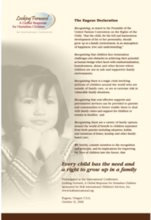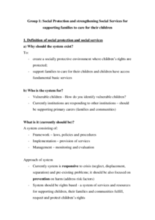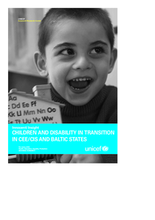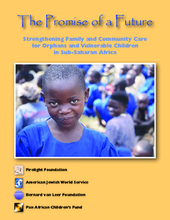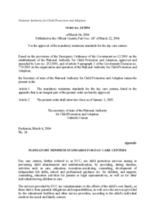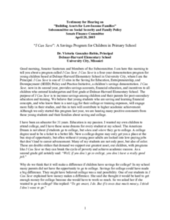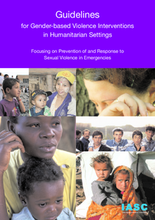Displaying 901 - 910 of 950
Recognition of the crises affecting children and a commitment to improving the lives of children.
This document presents notes from the Group 1 session of the Alternative Care Workshop in Bangkok in November 2005, focused on Social Protection and strengthening Social Services for supporting families to care for their children.
Report presents and analyzes new research and data around children with disabilities in the region, the effects of institutional care, and the need for family support services.
Guidelines for the care of young children separated from their families in emergencies. Includes detailed information on prevention of separation, child registration and documentation, and family reunification.
A brief document advocating for the strengthening and support of community based responses to children and families affected by HIV/AIDS in Africa.
Minimum standards for day care centers in Romania.
This document highlights a children’s saving program in the state of Missouri, USA. The five-year initiative focuses on increasing financial knowledge and self-efficacy, as well as saving accounts, among children and parents. The end goal is to increase student engagement in post-secondary education and training.
Training manual for a three-day course (targeted at care workers) on domestic violence. Focus on empowering battered women to find safety and regain control.
Comprehensive toolkit and resource pack for mobilising community-led OVC care. Includes detailed resources for training home visitors.
Comprehensive guidelines for dealing with the planning, establishment, and coordination of multisectoral interventions to prevent and respond to sexual and gender-based violence.

